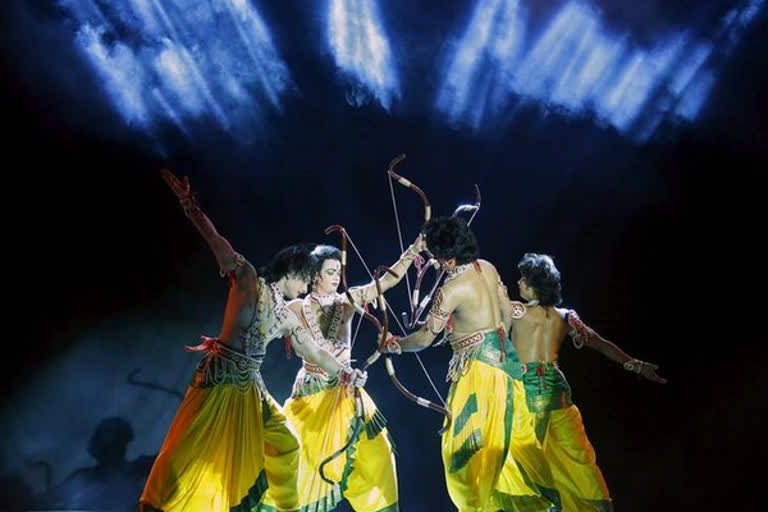New Delhi: As the nine-day long Navratri culminated, the nation today observe Vijayadashami, the day of victory, with religious fervor by following COVID-19 protocol.
Vijayadashami, also known as Dussehra, marks the victory of Goddess Durga over the invincible Buffalo king Mahishasura. The occasion is also seen as the day when Lord Ram defeated Ravana, which marks the triumph of good over evil.
Northern India celebrates this day as the victory of Hindu Lord Rama over demon Ravana. On the day of Dussehra, effigies of Ravana, Kumbhakaran and Meghnad are burnt.
Celebrations in the preceding nine-days of Navratri include a recital of the Ramayana as a Ramlila and dandiya raas.
A temple, Dashanan, in Uttar Pradesh's Kanpur is dedicated to Ravana. It is the only temple dedicated to Ravana across India. As part of the Dussehra festivities, Dashanan temple remembers and celebrates the demon king's virtues.
The festival is the highlight of the year for the state of West Bengal, or any Bengali in general, reflecting the importance of the occasion for the people. Following pujas and other traditional practices over the five-day long Durga Puja and prior to the immersion of the idol as part of the 'Ghot Bisharjon', Vijayadashami is marked with women participating in 'Sindoor Khela', which involves women applying vermilion (Sindoor) on each other after applying Sindoor on the Goddess' feet and forehead and feeding her with sweets and betel leaves.
Similarly, Vijayadashami is celebrated with much fervour in South India as well. Goddess Durga is also referred to as Chamundeshwari in these parts, with the city of Mysuru in Karnataka, which derives its name from the demon Mahishasur, being at the centre of the celebrations.
ALSO READ: Dusshera: Ravan effigy makers unhappy with drop in sale amid Covid-19
(ANI)



